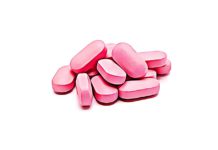“use positive reinforcement and different ways to interact with the drug user instead of being negative or getting into fights,” he said. “With this method, there’s no judgment or confrontation. The idea is to lower their anxiety of treatment.”
Meyers encourages parents not to discipline their child’s addictions with negative confrontations or angry outbursts, but to let them simply suffer the natural consequences of their actions.
“If they come home and vomit or make a mess, don’t clean it up, let them clean it up; if they get in trouble, don’t bail them out,” he said. “If they always get taken care of, they don’t suffer any negative consequences from their own behavior.”
It is important to set boundaries with your children, Bernstein agreed. He recommends remaining a firm pillar of support during their battle while encouraging them to take responsibility for it in all aspects of life.
“As parents, the two skills you want to promote in any child is the ability to calm down and solve problems,” he said. “In helping a young addict, you want to put responsibility back on them in the way that’s healthy.”
Changing harmful habits
Enabling, much like addiction, is a tough habit to break, and resisting the urge often requires constant conscious effort and self-discipline.
For many parents, resisting that urge also comes with guilt. It’s a natural feeling that parents should embrace, Bernstein said.
“Allow yourself to feel that, and accept that it’s natural and not something wrong with you,” he said. “Run it by your spouse or a friend so you don’t get weighed down by it. In dealing with addiction, sometimes it takes a village.”
Bernstein also recommends parents keep a journal to help remind them of all the ways they’ve helped their children.
“There’s’ so much going on in their lives that sometimes we forget,” he said. “If they could write down some of the main things they do for their children — like paying their rent or doing those favors — it could help empower them to not give in to rescue every need.”















